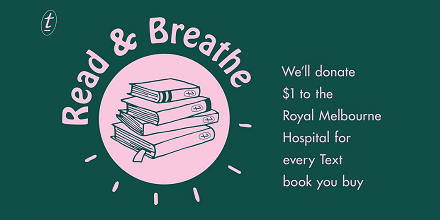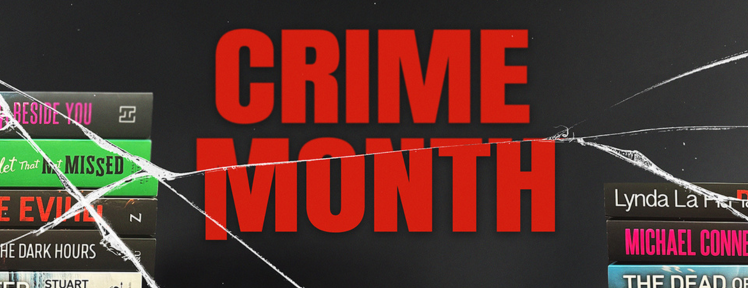Over the next few weeks, we’ll be posting excerpts from all of the wonderful books that made it onto the 2020 Stella Prize longlist. Today’s extract is from Lucky Ticket by Joey Bui, of which the judges said that ‘The immediate appeal of this collection of short stories is the striking colour and movement that imbues the characters, setting and narrative of each story—it’s a vibrant read. Within this environment, Bui delivers bolts of warmth, humour, despair, poignant reflection and enduring kinship.’ Read on!
Fortunes rise and fall. One day you have a lucky ticket and get a dinner so good and you eat so much that you think you’ll never need to eat again. You get busy making plans and then the hunger comes looking for you.
I’m just an old man selling lucky tickets, but my theory is that we all get our turn in the end. I’ve had my turn at fortune. It was some years ago, maybe 2002, because I remember that was when Sài Gòn was less red and bright with the fried chicken signs everywhere. Things were not as good, everything was dirty, dirtier than now. I didn’t have this chair then, I was still walking around on my knuckles. See how they’re so big and swollen? They never went back to normal.
That day in 2002 I walked over to Điện Phú Electronics, like I do every day. I try to do some business on the way. I passed the ladies selling bánh cuốn for breakfast, not very good ones, but I never said so, because sometimes one of them bought a ticket, with a little persuasion from me. That’s a big part of my job, I smile and I laugh all day long. It makes people feel better, and they buy a ticket.
None of the ladies bought a ticket, but one gives me a bánh cuốn with the rice-paper skin broken. Like I said, not the best bánh cuốn, but how could I refuse? Because the skin was broken, the insides slipped out as I ate it. I wiped my chin and—aiya!—I flicked sauce onto somebody walking by. It was an Asian lady, but she had yellow hair. Bright yellow like the sun.
I didn’t say anything because I was afraid of spitting more food onto her. She stared at me and I stared at her, still trying to chew up the bánh cuốn. She was strange-looking, her big oval eyes too far apart. A breeze came up and lifted all the yellow hair about her.
She leaned down, smelling like roses and lotions, and gave me a ticket, number 382918. ‘Good luck,’ she said.
You can’t explain it any other way. I just knew it was my lucky ticket, number 382918. I put it in my pocket.
I sold twenty tickets by the end of the afternoon. Thinking about this lucky ticket in my pocket, I couldn’t keep it to myself anymore. I finished up early and walked down to find Hiếu, who was working in front of the blind school, to tell him the good news.
Hiếu is one of the smartest guys I’ve ever known. You know the Quốc Văn Giáo Khoa Thư lessons, the ones from school? He could recite them all, word for word. All the poems too, he knew them all. He could tell what any tree was before its fruit had grown. Hiếu had the problem a lot of smart guys have: no one liked him. He was also very fat, mostly in the face. His cheeks pushed up against his eyes and his neck bulged. Now that we were getting old, all the bulges drooped on him. And he was so black, like some of the French guys in the war.
Because of the way his cheeks were, Hiếu’s speech was not good, so the poems always sounded weird coming out of him, with bs and phs everywhere.
‘The beggar wanphs the sweeb gourd rice.’ That’s what he sounded like.
‘People care too much about what’s on the outside, that’s the problem with most people,’ I’d tell Hiếu.
‘We are the outside, Kiệt! We’re always outside! So why don’t they care about us!’ he’d reply. I’m saying it without the accent so that you can understand. He was funny. I would be jealous if I wasn’t his only friend in the world.
At night, we used to go and look at Notre Dame cathedral, Hiếu’s favourite place in the city. That was before the police started banning beggars. We stood in the alleyway next to the Sài Gòn Post Office. Everything looked much brighter in the dark, the café lights and motorbike beams, the girls in lipstick. Hiếu would sing ‘Chị Tôi’, ‘My Sister’. His lisp wasn’t so bad when he sang.
Many years have passed when I come back to my hometown
I see the leaves grown stale on the bridge
The shadow of my once beautiful sister
The shadow of a beauty never loved.
It was the saddest thing I’d ever known, listening to Hiếu sing ‘Chị Tôi’. It made me think that I’d do anything, anything, if only Hiếu could be in love. Nothing would be worth more to me than for him to be in love.
My theory is you can’t feel very full without feeling sad, so it’s necessary sometimes to scrape right down to the bottom. We went to Notre Dame so many times just to feel that sad.
I told him that I had a lucky ticket.
—Lucky Ticket by Joey Bui (Text Publishing) is out now.
Until the 31st of May 2020, Text Publishing will donate $1 to the Royal Melbourne Hospital, one of five global WHO Collaborating Centres for Research on Influenza, for every one of their books sold – find out more here.

Lucky Ticket
Fortunes rise and fall. One day you have a lucky ticket and get a dinner so good and you eat so much that you think you’ll never need to eat again. You get busy making plans and then the hunger comes looking for you.
A highly original collection of stories by a talented young writer. In Lucky Ticket, Joey Bui introduces a diverse range of characters, all with distinctive voices, and makes us think differently about identity, mixed-race relationships, difficulties between family generations, war and dislocation...








 What do we know about the Boy Swallows Universe Netflix show?
What do we know about the Boy Swallows Universe Netflix show?  Booktopia’s top thrilling fiction picks for Crime Month
Booktopia’s top thrilling fiction picks for Crime Month  Booktopia’s Top First Nations Book Recommendations for 2023
Booktopia’s Top First Nations Book Recommendations for 2023
Comments
No comments